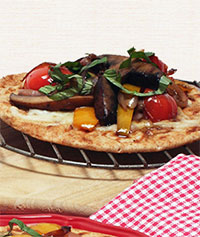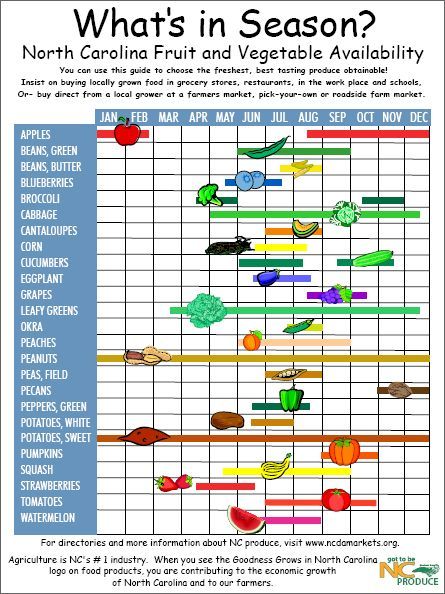How does gardening help cancer survivors recover and prevent recurrence?
Nutrition
It’s no secret that a healthy diet is one component in cancer prevention. A plant based diet rich in fruits and vegetables provides our bodies with phytochemicals; which are cancer-fighting nutrients. The more variety of fruits and vegetables you eat, the more phytochemicals you have to protect your body. The more readily available fruits and vegetables are, the more likely you are to eat them. Whether you have a big garden or a container garden, you will have fresh produce right at your fingertips! Your goal should be 5-7 servings of fruits and vegetables daily.
There are tons of ways to incorporate your fresh produce into your diet. You can chop up green peppers and make an omelet, add zucchini to a pasta dish, put sliced tomato on your sandwich, grill them as a side dish, make a cucumber salad, and much more! Check out this recipe for a delicious grilled pizza topped with vegetables you could grow in your own backyard: http://www.aicr.org/health-e-recipes/2014/grilled-pizza-with-grilled-vegetables.html?referrer=http://www.aicr.org/healthyrecipes/vegetables.html?page=5

Gardening is more than Nutrition
Research has shown that being exposed to views of natural settings helps patients recover faster, require less pain medication, and have more positive feelings. Surrounding yourself in a natural landscape and doing 30 minutes of outdoor gardening can reduce stress and improve your mood. Even more, the longer you garden, the better your mental health may be. Gardening can help alleviate symptoms of depression, like fatigue and sadness, and improve memory function. In a study by Macmillian Cancer Support and the National Gardens Scheme, 3 in 4 gardeners living with cancer said gardening during and after treatment helped them manage their feelings of sadness. Moreover, doing moderate physical activity such as gardening on a regular basis helps reduce the side-effects of cancer treatment like fatigue, bone thinning, muscle wasting, and heart damage.
No Room for a Garden?
Container Gardens You don’t have to have a lot of space or even your own yard to garden. Container gardens are great for small spaces. Most vegetables actually grow really well in containers. And by picking the right plants, you can create your own vegetable container garden and grow a fair amount of food in just a few pots! Most vegetables aren’t fussy about what kind of container they grow in. The only basic requirement is that the container is large enough to hold the plant and that it has drainage holes so excess water can escape.
Community Gardens Check with your local community to see if there is a garden established. Community gardens are created within your city and small plots of land are sold to residents to plant, take care of, grow, and harvest their very own vegetables on. This is another great alternative for people who don’t have the resources or space at home for their own garden, plus, you get the comradery of the community. For North Carolina community gardens check out this website: http://www.nccgp.org/
CSA Boxes CSA boxes (Community Supported Agriculture) are delivered weekly right to your door from local farms and are filled with whatever was harvested that week. CSA boxes are convenient alternatives for people who don’t garden but desire the benefits of the freshest crops and a variety of new foods to try each week. Often, different size boxes are available depending on how big your family is. Plus, did you know agriculture is North Carolina’s #1 industry? To learn more about CSA and to find a local farmer closest to you, visit: http://www.localharvest.org/csa/
